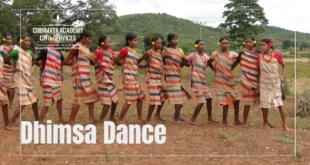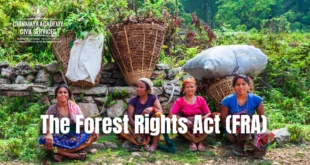- Since 2019, members of the Kondh tribe in Odisha have added one more event to their calendar of festivals and celebrations called Bihan Mela
- It is literally the seed festival.
- It includes both hybrid and indigenous varieties of paddy, millets, maize and sorghum.
How is it celebrated?
- Women, who are at the helm of this festival, carefully collect seeds of the indigenous varieties and store them in earthen pots.
- Then, on a designated day in December, they decorate the pots with red and white motifs, place them in a bamboo basket and carry it on head to the village where the fair is being organised.
- Along the way, they are accompanied by men beating drums and other traditional instruments.
- The fair mimics a traditional market where farmers used to exchange seeds.
Significance of the festival:
- Farmers in the region are mostly marginal and depend on the monsoon rains.
- In recent years, they have seen repeated crop failures either due to erratic rainfall or pest attacks.
- Since the Green Revolution, farmers in the region have abandoned native crops and varieties that are naturally resistant to pests and better suited to the region’s climate.
- Even in dongars or hilltops, where families used to practice mixed cropping until recently, have shifted to monoculture cash crops like cashew.
- This has not only affected their food and nutritional security, but also degraded the soil and made the farmers more vulnerable to crop loss.
- The seed festival was thus introduced to help farmers return to their traditional ways of farming like mixed-cropping.
Kondh Tribe:
The Khonds are the largest tribal group in Odisha.
They are a designated Scheduled Tribe in:
- Andhra Pradesh, `
- Bihar,
- Chhattisgarh,
- Madhya Pradesh,
- Maharashtra,
- Odisha,
- Jharkhand and
- West Bengal.
The Khonds speak the Kui language as their native language.
- It is most closely related to the Gondi language.
- Kui is a Dravidian language and is written with the Odia alphabet.
SOURCE: THE HINDU, THE ECONOMIC TIMES, PIB
 Chinmaya IAS Academy – Current Affairs Chinmaya IAS Academy – Current Affairs
Chinmaya IAS Academy – Current Affairs Chinmaya IAS Academy – Current Affairs



